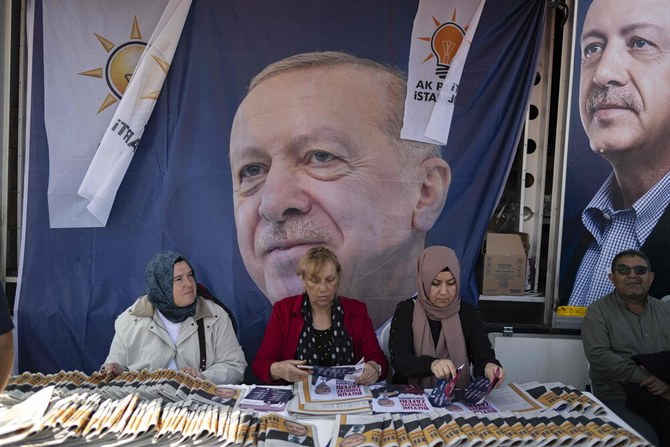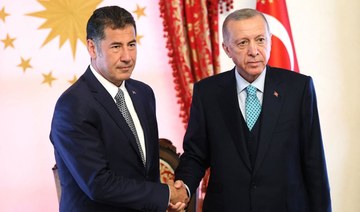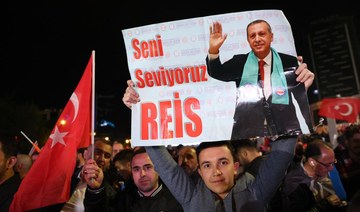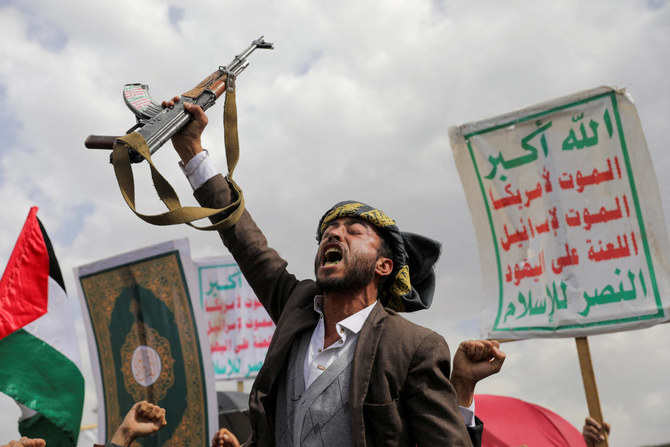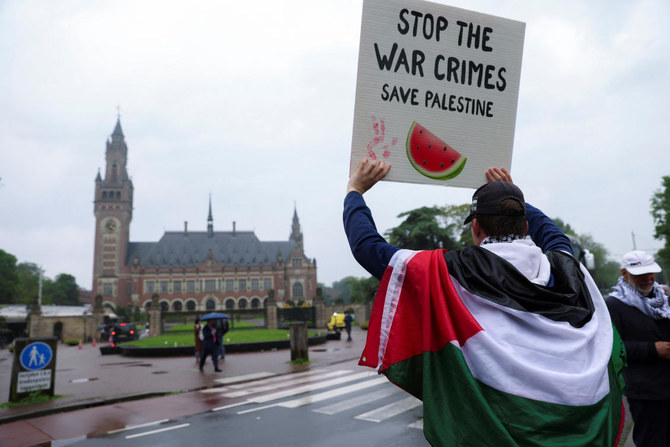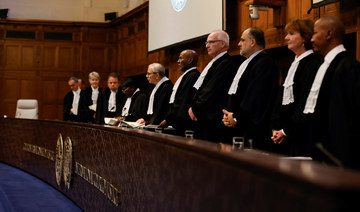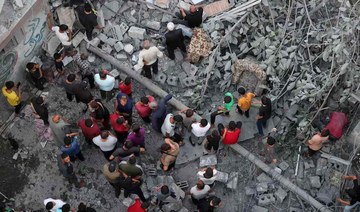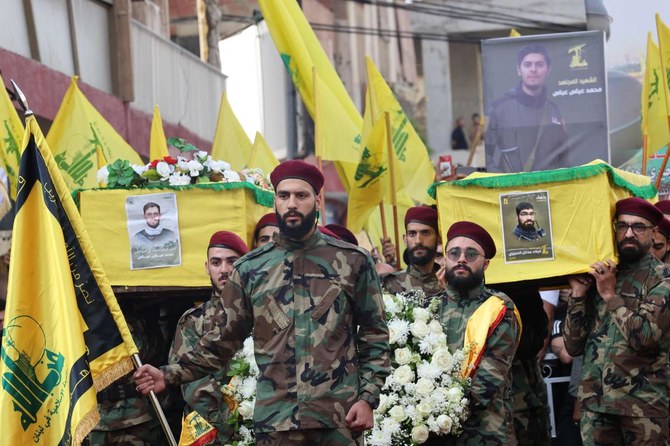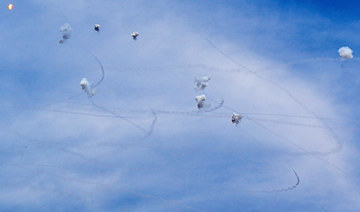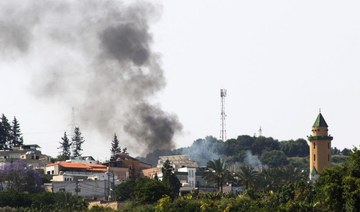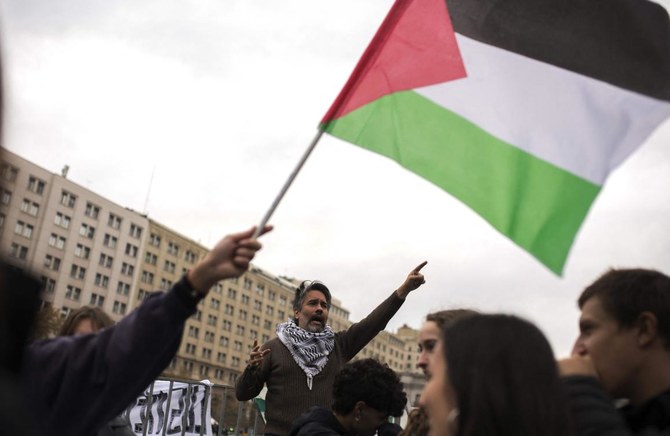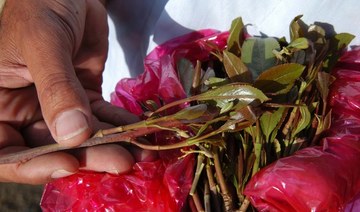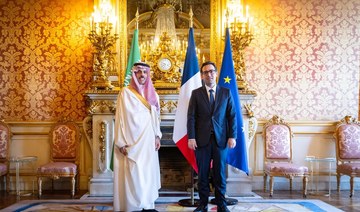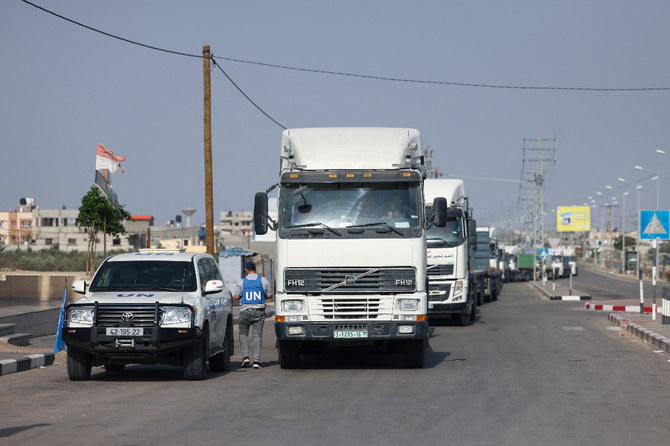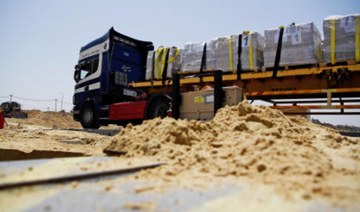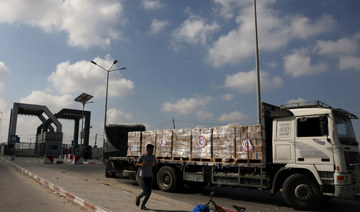ANKARA: With neither presidential candidate passing the 50 percent threshold needed for an outright win, Turkiye’s voters head for a second round on Sunday to decide who will be their next leader.
In the first round, incumbent 69-year-old President Recep Tayyip Erdogan gained around 2.5 million more votes than his 74-year-old rival Kemal Kilicdaroglu. However, Erdogan’s 49.5 percent of the votes was not enough for an outright victory against Kilicdaroglu’s 44.9 percent.
In the first round, 54 million people cast their votes, among them 5 million first-time voters. The turnout for the presidential elections in the first round was the highest in the country’s history, at 87 percent.
The ruling government coalition, the Justice and Development Party and its nationalist and Islamist allies, secured a majority in parliament.
After failing to grasp a parliamentary majority, the center-left, pro-secular opposition, with a new campaign slogan “Decide for Turkiye,” now face a serious challenge in delivering on their pledge to gain the presidency.
After his first-round loss, the opposition’s joint presidential candidate Kilicdaroglu repeated his earlier promises to repatriate all refugees within two years and to reduce Turkiye’s dependence on Russia.
Kilicdaroglu also adopted a more aggressive and nationalistic tone, claiming Erdogan had purposely allowed the entry of 10 million refugees into the country and that millions more may come if Erdogan wins another term.
Kilicdaroglu also accused Russia of meddling in Turkiye’s elections with deepfake content, montages and conspiracies.
Meanwhile, both candidates tried to lure voters from Sinan Ogan, 55, the ultranationalist and anti-refugee third candidate, who won 5.2 percent in the May 14 vote although being a little-known fringe politician. But now potential kingmaker Ogan has announced his support for the Erdogan-led ruling coalition for the runoff.
During an interview with the state-run TRT channel on Monday, Erdogan thanked Ogan for his support. He said Ogan “knows very well our stance on fighting terrorism, relations with the Turkic world and the survival of our country.”
Kilicdaroglu’s candidacy was supported by the pro-Kurdish Peoples’ Democratic Party, or the HDP, particularly in the country’s southeast. Therefore any alliance with Ogan, a vocal Turkish nationalist, could bear the risk of alienating the Kurdish voters who voted for Kilicdaroglu because Ogan explicitly made clear his objection to giving any concessions to the HDP.
The big question now is how Ogan’s presence in the ruling government coalition will influence the voting of about 167,000 eligible Syrian nationals. This is because Ogan insists on a timetable for the repatriation of some 3.7 million Syrian refugees.
Speaking to TRT, Erdogan announced that 450,000 Syrian refugees had returned home after the provision of houses by Turkiye in Syria, and added that the government was planning to send back another 1 million.
Still, nothing is cast in stone and the current political picture is full of uncertainties, particularly with the potential impact of young voters and 8.3 million undecided Turks who abstained from voting in the first round.
The parliamentary majority of the ruling government, however, increases Erdogan’s likelihood of reelection for the presidency as voters are likely to vote for him to avoid a split government, analysts say. This is because a Kilicdaroglu win in the runoff would see him have trouble getting his policies passed through parliament.
Bidding for a third five-year term, Erdogan’s control of state institutions and much of the news media, where he labeled the opposition as a supporter of “terror groups” with alleged fabricated videos, has made Kilicdaroglu’s efforts to convince voters much more difficult while retaining his current electoral base.
Meanwhile, there are already worrying signs that the economic crisis might worsen after the elections with a rise in the selloff of Turkish assets. The European Bank for Reconstruction and Development recently reduced its 2023 growth forecast for Turkiye from 3 percent to 2.5 percent.
Daron Acemoglu, a well-known Turkish economic professor at the Massachusetts Institute of Technology, has warned that Turkiye could only address the current crisis by either returning to orthodox policies or imposing tight capital controls.
For Ozgur Unluhisarcikli, Ankara office director of the German Marshall Fund, Ogan’s potential to persuade those who voted for him in the first round of the presidential election to vote either for Erdogan or Kilicdaroglu is exaggerated.
“His voters were not uniform. Some were secular nationalists who did not want to vote for Erdogan. Others were opposition supporters who did not want to vote for Kilicdaroglu. In either case, Ogan was a ‘placeholder’ and not the primary factor driving voter behavior,” he told Arab News.
Despite Ogan’s support, it is still uncertain whether all of his supporters would vote for Erdogan because Ogan’s “Ancestral Alliance,” a grouping of the Victory Party, Justice Party and two other small nationalist parties, has already splintered.
Victory Party chairman Umit Ozdag, known for his harsh anti-refugee discourse, will announce his position soon, while another coalition partner of Ogan, Justice Party Chairman Vecdet Oz, has already announced his support for Kilicdaroglu.
For Unluhisarcikli, it is likely that the fringe political parties that supported Ogan will endorse Kilicdaroglu, which would do more than counterbalance Ogan’s decision.
“Finally, Ogan’s first-round voters still have an easy third choice besides voting for either of the presidential candidates. They could just stay home,” he said.
As Ogan’s supporters are mostly known for their dislike of both presidential candidates, many of these protest voters could decide simply not to vote in the second round.
Atila Kaya, a former nationalist lawmaker who backed Ogan’s candidacy in the first round, condemned his decision to support the ruling coalition, in a tweet: “If you expect that you can design the future you desire from the will of ‘one man,’ it means you have never been familiar with the tradition you are trying to articulate with!”
On Wednesday night, Kilicdaroglu’s interview on Babala TV, a YouTube talk show channel featuring impassioned interviews with political leaders and attracting millions of views, will be broadcast.
His performance, where he will be asked questions by a young and critical audience mostly picked from the ruling government’s voters, is expected to influence the deep-rooted prejudices against him on a range of issues and to convince undecided voters to a certain extent.



